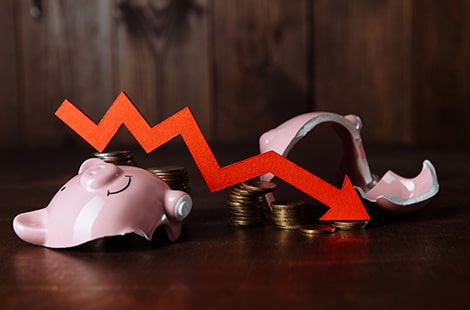Counterfeit airbags pose significant hazards in the automotive sector, endangering lives and property. Unlike genuine airbags, counterfeit versions often fail to deploy properly during accidents or explode with dangerous force, leading to severe injuries. According to the National Highway Traffic Safety Administration (NHTSA), thousands of counterfeit airbags have been identified in vehicles globally, contributing to increased road fatalities and injuries.
These fake airbags are made with substandard materials and lack proper quality control, failing to meet strict safety standards. This weakens the vehicle’s safety system, leaving drivers and passengers at greater risk during collisions.
A global study by the Organisation for Economic Co-operation and Development (OECD) estimated that counterfeit automotive parts, including airbags, account for billions of dollars annually. In 2022, the NHTSA reported a 12% increase in incidents involving counterfeit airbags compared to the previous year. This trend continued in 2023 with an additional 15% rise in such incidents, underscoring the growing threat. It was also reported that counterfeit auto parts, including airbags, constitute approximately 2.5% of the global trade, posing a substantial threat to consumer safety.
The costs associated with injuries, fatalities, and vehicle damage due to counterfeit airbags burden healthcare systems and insurance companies, ultimately affecting consumers through higher premiums. The automotive industry and regulatory bodies must collaborate to increase awareness and enforce stricter measures to combat counterfeit airbags, ensuring safer roads for everyone.
The warning signs of a Poor Quality Airbag
Since 2009, counterfeit airbags, often originating from China, have been infiltrating the U.S. market, posing significant risks. The NHTSA and other federal agencies have warned of the dangers these fake airbags present, as they can fail to deploy or explode, leading to serious injuries. NHTSA tests on 11 counterfeit airbags revealed dangerous outcomes, including non-deployment and explosions that sent metal shrapnel into the cabin.
Authentic airbags are a vital component of a vehicle’s supplemental restraint system (SRS), and counterfeit airbags severely compromise safety. While NHTSA estimates that less than 0.1 percent of U.S. vehicles may contain counterfeit airbags, the true number remains uncertain. Despite criminal investigations and warnings, counterfeit airbags continue to be a profitable underground business.
Several warning signs indicate the installation of a poor-quality airbag. These include:
1. The airbag was replaced at a non-dealership repair shop within the past three years.
2. The replacement airbag was purchased from uncertified sources like eBay.
3. The cost was significantly lower than the usual $400-$500 for an OEM airbag.
4. Differences in the texture, color, and presence of tear seams on the airbag cover.
5. Poorly defined “SRS” embossing on the airbag cover.
6. Evidence of trimming or modifications to fit the airbag in the steering wheel housing.
7. A non-functioning airbag warning light on the instrument cluster.
Consumers should verify a vehicle’s repair history, especially for signs of airbag replacement. Tools like CarMD, which connects to a car’s OBD-II port, can detect if the airbag control unit is faulty or missing, although it performs best with advanced airbag systems.
To ensure proper repairs, it’s crucial to rely on reputable repair shops. While the NHTSA recommends authorized new-car dealership shops, some experts suggest that independent, accredited repair shops are also reliable. Organizations like AAA and the Automotive Education and Policy Institute provide resources to help consumers locate trusted repair shops.
How Counterfeit Airbags affect Consumer’s Safety?
Counterfeit airbags pose a serious threat to consumer safety worldwide. Investigations show that these fraudulent components often fail to meet essential safety standards, greatly increasing the risk of injury during vehicle collisions. A 2020 study revealed that nearly 20% of replacement airbags in major markets like the U.S., Europe, and Asia were counterfeit, underscoring the widespread nature of this issue.
These counterfeit airbags are crafted to closely resemble genuine parts, making detection difficult for both consumers and mechanics. They lack the rigorous engineering and testing that authentic airbags undergo, leading to catastrophic failures. Airbags may fail to deploy properly or deploy with excessive force or incorrect timing during a crash. Such failures can result in anything from minor injuries to fatalities, with devastating consequences for individuals and families.
The financial impact is also significant, involving costly legal battles and widespread vehicle recalls to address safety violations. Counterfeit airbags put lives at risk and impose heavy financial burdens on both consumers and manufacturers.
To ensure maximum safety, consumers should always use authorized dealers and certified repair shops for vehicle repairs and parts replacements. Raising awareness about the dangers of counterfeit airbags is critical to protecting the safety of drivers and passengers worldwide.
How Counterfeit Airbags Affect a Brand’s Reputation in Automotive Sector?
The presence of counterfeit airbags in the automotive market poses a severe threat to both consumer safety and the reputation of auto brands. A public warning from the Obama Administration highlighted that millions of vehicles could be compromised by these subpar replacements, reflecting a widespread concern across the industry.
Counterfeit airbags present a significant safety risk and can seriously damage a brand’s reputation if they fail to deploy correctly in accidents, eroding consumer trust.
These counterfeit parts lead to customer dissatisfaction and trigger recalls, legal issues, and financial losses. Their deceptive, low-cost nature undermines the automotive repair and parts industries.
Government intervention, including the release of lists of high-risk models and raids to seize counterfeit parts, underscores the severity of the issue. Although counterfeit airbags affect less than 0.1 percent of the U.S. vehicle fleet, the potential harm to brand reputation is considerable. Manufacturers and industry bodies have increased vigilance and are educating consumers about the dangers of non-genuine parts.
Addressing this issue requires collaboration between automakers, regulators, and repair shops to ensure that safety and brand standards remain intact. Safeguarding a brand’s reputation amidst these challenges is essential to maintaining consumer trust and industry credibility.
Ennoventure’s Revolutionary Anti-Counterfeit Technology in the Automotive Sector
At Ennoventure, we are at the forefront of combating the pervasive issue of counterfeit auto parts in the automotive industry. Our revolutionary anti-counterfeit technology enhances automotive brand protection by embedding cryptographic signatures into existing packaging processes. This ensures the authenticity of crucial automotive components, from airbags to engine parts, safeguarding them from production to point-of-sale.
Our user-friendly verification process involves a simple scan using a smartphone, making it accessible for distributors and consumers to confirm the authenticity of parts instantly. By protecting components with our encrypted technology, Ennoventure sets a new benchmark in automotive safety and supply chain transparency.
Our commitment is to strengthen automotive brand protection, driving the industry’s future with secure, innovative solutions. With Ennoventure, automotive companies can ensure that every vehicle is equipped with genuine parts and represents the highest standards of safety and reliability.



